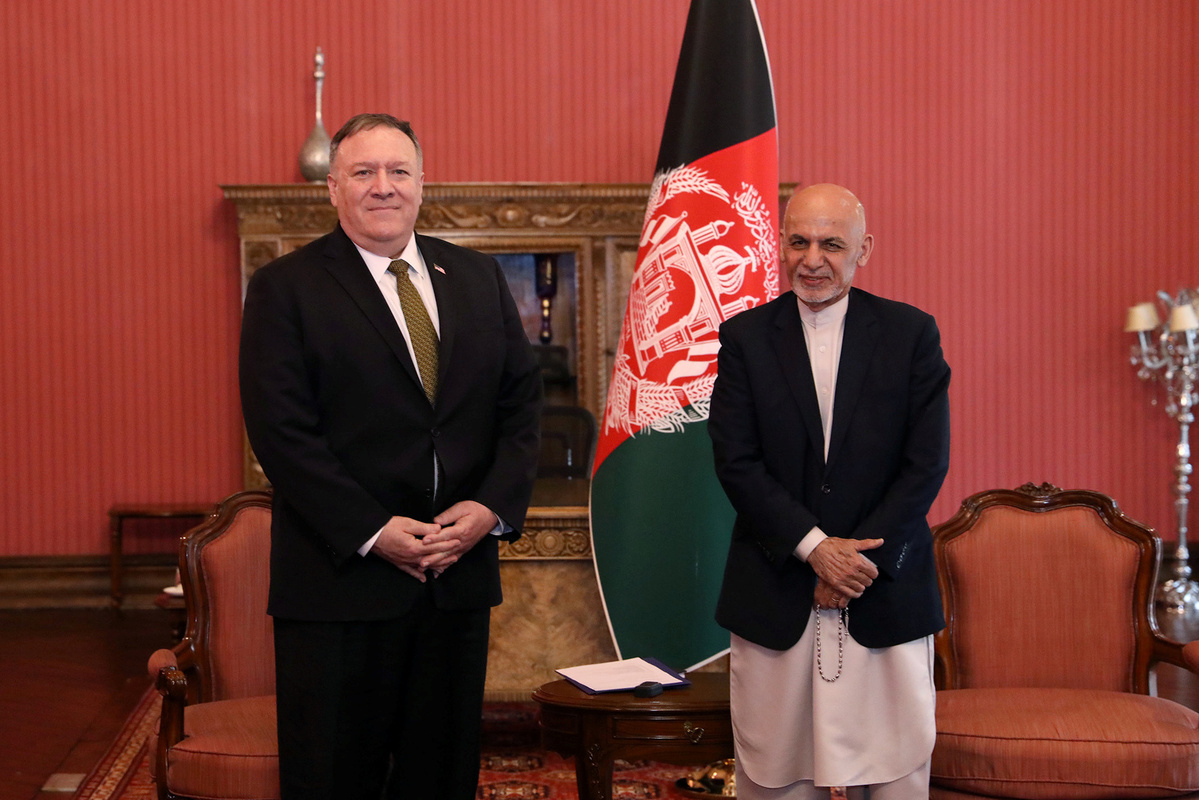US cuts assistance to Afghanistan over political impasse
Xinhua | Updated: 2020-03-24 13:25

WASHINGTON - US Secretary of State Mike Pompeo said on Monday that the United States is reducing assistance by $1 billion to Afghanistan this year due to the Afghan leadership's failure to form an inclusive government.
The State Department said in a statement that the United States "deeply regrets" that Afghan President Ashraf Ghani and former Chief Executive Abdullah Abdullah had informed Pompeo that they could not agree on an inclusive government.
"We are today announcing a responsible adjustment to our spending in Afghanistan and immediately reducing assistance by $1 billion this year. We are prepared to reduce by another $1 billion in 2021," said the statement, calling the Afghan leadership's failure as "a direct threat to US national interest."
"Should Afghan leaders choose to form an inclusive government that can provide security and participate in the peace process, the United States is prepared to support these efforts and revisit the reviews initiated today," the statement added.
Following his meeting with Afghan leaders in Kabul on Monday, Pompeo had a brief stay in Doha, Qatar, where he met with the Afghan Taliban's political chief Mullah Baradar. Pompeo later told the traveling reporters that he had made clear to the Taliban US expectations about reducing violence.
Pompeo's intensive trip to Kabul and Doha took place amid a stalemate in peace talks between the Afghan government and the Taliban, as well as an ongoing political turmoil in the conflict-battered country.
On Feb. 18, Afghanistan's election commission declared Ghani winner of the presidential election nearly five months after the voting, but his rival Abdullah Abdullah disputed the result.
Ghani and Abdullah both took oath as president of Afghanistan on March 9.
The United States and the Taliban inked a peace deal on Feb. 29 after rounds of marathon talks to end America's longest war in its history, paving the way for the withdrawal of thousands of US troops and facilitating intra-Afghan dialogues to find a negotiated settlement to Afghanistan's lingering crisis.
Under the agreement, the United States was to secure the release of 5,000 Taliban prisoners from the Afghan government's jails within 10 days after signing the peace deal to facilitate direct talks between the Taliban group and the Afghan government.
In return for the prisoners' release, the Taliban agreed to set free 1,000 Afghan security personnel who are in the armed group's custody.
However, the Afghan government refused to release the Taliban detainees, demanding the Taliban group observe the ceasefire and initiate talks with the government ahead of the detainees' release, but the Taliban rejected the condition.
























